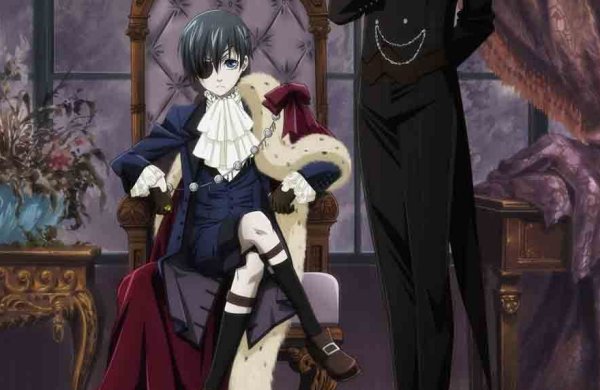
Creative Staff
Writer/Artist: Naoki Urasawa
Translation: Jared Cook and Frederick L. Schodt
Adaptation: Jared Cook and Frederick L. Schodt
What They Say
In a distant future where sentient humanoid robots pass for human, someone or something is out to destroy the seven great robots of the world. Europol’s top detective Gesicht is assigned to investigate these mysterious robot serial murders”the only catch is that he himself is one of the seven targets.
Content: (please note that content portions of a review may contain spoilers):
Pluto isn’t so much a remake of Tezuka’s “The Greatest Robot on Earth” as it is a deconstruction of the Astro Boy formula. For starters, Urasawa and Nagasaki have made the once-minor robot detective Gesicht into Pluto’s main character, with Astro Boy himself — translated as “Atom” throughout Pluto in deference to his original Japanese name — barely registering as a cameo in this volume. Beyond this shift in protagonists, Pluto is also exceptionally dark (complete with explicit references to the works of Robert Heinlein and Sigmund Freud) and much more methodically paced than Tezuka’s original story.
Pluto is so methodically paced that Volume 1, which already rivals the entire length the original Astro Boy arc, barely does more than introduce some of the key characters. The first character introduced to the reader is Gesicht, who enters into the story as part of an investigation into the murder of a robot police officer. Clues in the investigation, including images recorded in the slain robot officer’s memory chip, connect this murder case to the bizarre recent death of the Swiss robot Mont Blanc.
The two cases take a psychological toll on Gesicht, who starts having recurring nightmares and visions of a strange man offering 500 zeus for robot carcasses. Gesicht reaches out in desperation to the psychopathic robot Brau 1589 (with a sequence obviously inspired by Hannibal Lector’s introduction in The Silence of the Lambs) to try to understand who or what could kill the beloved Mont Blanc. After waxing philosophical about Mont Blanc’s death, Brau suggests that someone is out to eliminate the seven most powerful robots in the world — which include Mont Blanc and Gesicht himself.
The story then cuts to the Scottish estate of the blind composer Paul Duncan. He has recently accepted the services of the robot North No. 2, a former military robot who is also haunted by nightmares from his past. Duncan has an innate dislike of modern technology and is therefore extremely reluctant to accept North No. 2 at first, though the two eventually form a bond over Duncan’s unhappy childhood in Bohemia. Right before the narrative swings back to Gesicht’s investigation, North No. 2 senses the presence of something resembling the “tornado” that destroyed Mont Blanc, implying that he will be the murder’s next victim.
Most readers should be able to size up how much they’re going to like Pluto just based on the basic concept of “Astro Boy meets Naoki Urasawa”. It’s a mixture I was personally unsure about before reading, but it turns out to work exceptionally well: Urasawa clearly cares enough about the source material to recognize that he needed more than cosmetic changes to adapt it to his storytelling style. The universe of Pluto as envisioned by Urasawa and Nagasaki is gritty, complex, and psychologically rich: in other words, exactly the kind of thing that justifies a new version of a perfectly good story from one of the manga industry’s most beloved creators.
This psychological richness is probably the only thing that will turn off prospective readers. Urasawa’s thrillers tend to take their time developing the story, and Pluto so far is no exception. Readers who buy Volume 1 of Pluto will be sinking $13 into a book that gives them only a fairly small slice of plot advancement in exchange … an exceptionally well-polished small slice, but small nonetheless.
In Summary:
As much as I love these kinds of dark seinen series, I was a little let down that Volume 1 ends with the story still stick in the middle of its introductory phase. But a more positive way of looking at things is that Pluto Volume 1 left me wanting more, and so it comes strongly recommended for readers who can stomach this kind of deliberate narrative pace.
Content Grade: A
Art Grade:A
Packaging Grade: A-
Text/Translation Grade: A
Age Rating: 16+
Released By: Viz MEdia
Release Date: February 17th, 2009
MSRP: $12.99



